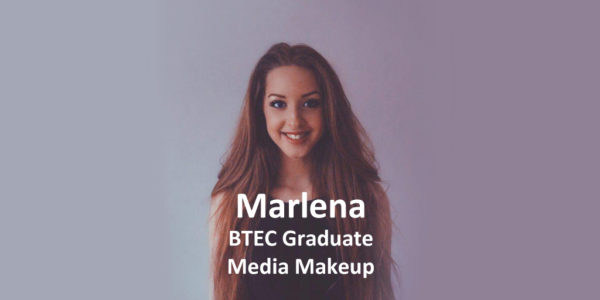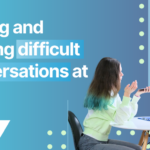Media Makeup BTEC graduate Marlena shares her experience of choosing a BTEC as a positive alternative to A-levels. Interview by Youth Employment UK Youth Ambassador Olivia Watkins.
Marlena is nineteen and has just finished her BTEC Extended Diploma in Media Makeup. She initially did a year of A-levels in a 6th-form college after finishing her GCSEs.
What was your experience with A-levels before you changed to BTEC?
MARLENA: My A-level experience was very full on. I spent most of my time travelling to and from my college because it was quite far away, however it was recommended as the best one in my county. And then, when I got home from college, most of my evening was spent revising for exams. I did Psychology, German and a BTEC in Performing Arts.
How did this experience with your A-levels affect you, positively and negatively?
MARLENA: Okay, so, negatively it drained me and made me exhausted. It took a toll on my health because I was physically exhausted; I started getting more ill a lot. Mentally, my anxiety was getting worse. As a result, I had to miss days off college and then my grades suffered because of it.
Positively, I learnt a lot of things in a very short period of time. A lot of the thingswere interesting and I’d never had the option to learn them before, like in Psychology. It put me outside my comfort zone – which I feel helps you progress on a personal level.
How and why did you decide to leave A-levels and go to a college solely for BTECs?
MARLENA: I’ll tell you how it happened chronologically in my head. So, the whole of summer 2017 I was ridden with anxiety. Every time I went to sleep I would think about my upcoming exams and just how far behind I was, due to missing college and all the work I had to do throughout summer for the following year.
It got to a point where I felt like I couldn’t do it anymore. It was too much for me. It wasn’t right for me. The way A-levels were examined and revised for wasn’t right for how I learn. I spoke to my parents and we laid out a list of options. I weighed up the pros and cons of going straight into full-time work. I found the BTEC course online for a local college and I realised that was what I wanted to do.
What were your main concerns about doing BTEC?
MARLENA: My reputation; that people would think I was ‘stupid’ and that I wouldn’t get a good university degree afterwards. Also, in doing A-levels you have the choice to do three separate subjects, so something I really had to think about was which subject I was interested in really, really deeply. I chose media makeup.
If you had to choose one main point to compare BTEC and A-levels, what would you say?
MARLENA: The way a BTEC is examined. You don’t really have to revise. You instead just have a lot of coursework, but it’s spread out over a number of weeks so you have time to prepare for it.
A BTEC is also split up into tasks so you do a little bit of practical as part of the grade, and then you do the research for it, designing and things as well. Then you evaluate everything. Splitting it into parts is a lot easier and a lot less stressful.
To clarify, I do a 90 credit diploma and an extended diploma, so it is worth the same as three A-levels. The extended diploma is the second year.
What would you say about the stigma surrounding BTECs and how to get people to see through that?
MARLENA: I think that it is rooted in ignorance. People don’t understand a BTEC qualification and the majority of people it is aimed at are people who academically don’t find exams very easy. They might still be very intelligent people but they just find exams harder to do. Exams aren’t the right way for them to be graded. Usually this means BTECs are seen as aimed at people who are ‘stupid’. For example, you might just not work well under time pressure, like me.
However, a BTEC – if you use it right – can give you the opportunity to use your abilities to your advantage. If you know what you want, and you use your BTEC correctly, then you can come out of it with really good grades that are completely equivalent to A-levels in that subject that you have chosen.
How has changed to doing a BTEC and getting great grades made you feel?
MARLENA: I feel accomplished. I feel so much more confident in myself and my academic ability. It’s put me in the right direction for the career path that I wanted because when you feel good about a subject it makes you want to pursue it. For example, I never realised the potential that I had in writing. Now, having done so much coursework, my BTEC has really taken me back to writing as a key skill, and I have realised that it is actually something that I’m really good at.
What would you like to do now that you’ve just finished your BTEC?
MARLENA: I would like to go to university and study Beauty Promotion at Southampton Solent. After that, I want to potentially do a Masters in Creative Direction with hopes of being a Creative Director. I now have an unconditional offer to go and study Beauty Promotion.
Find out more about BTECs:













